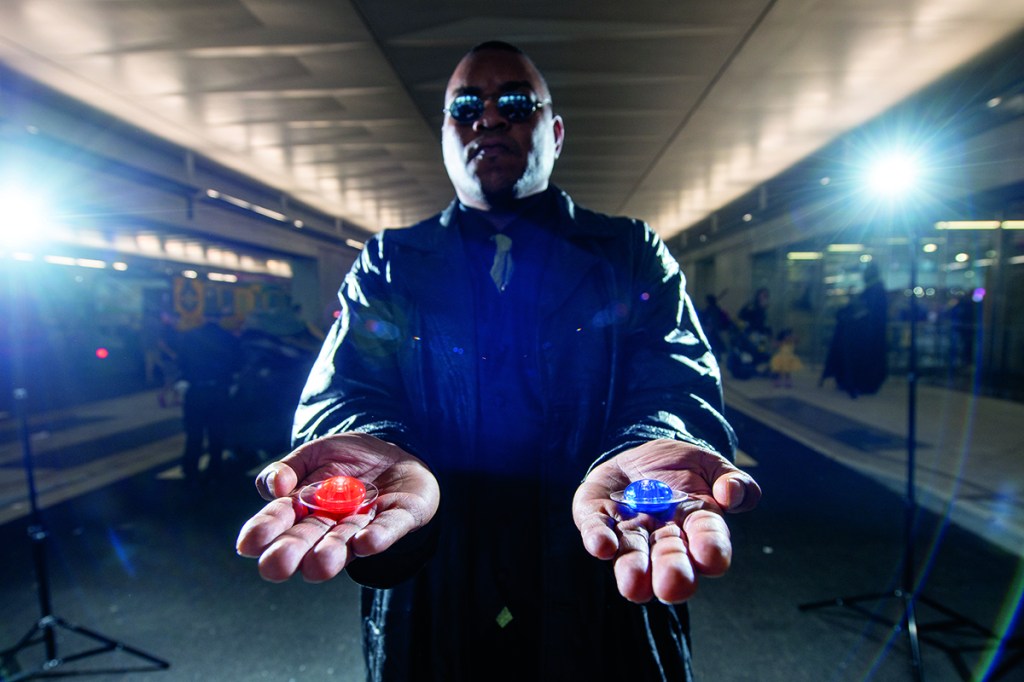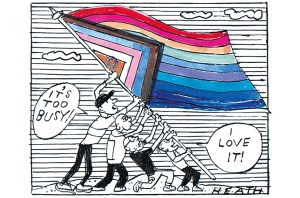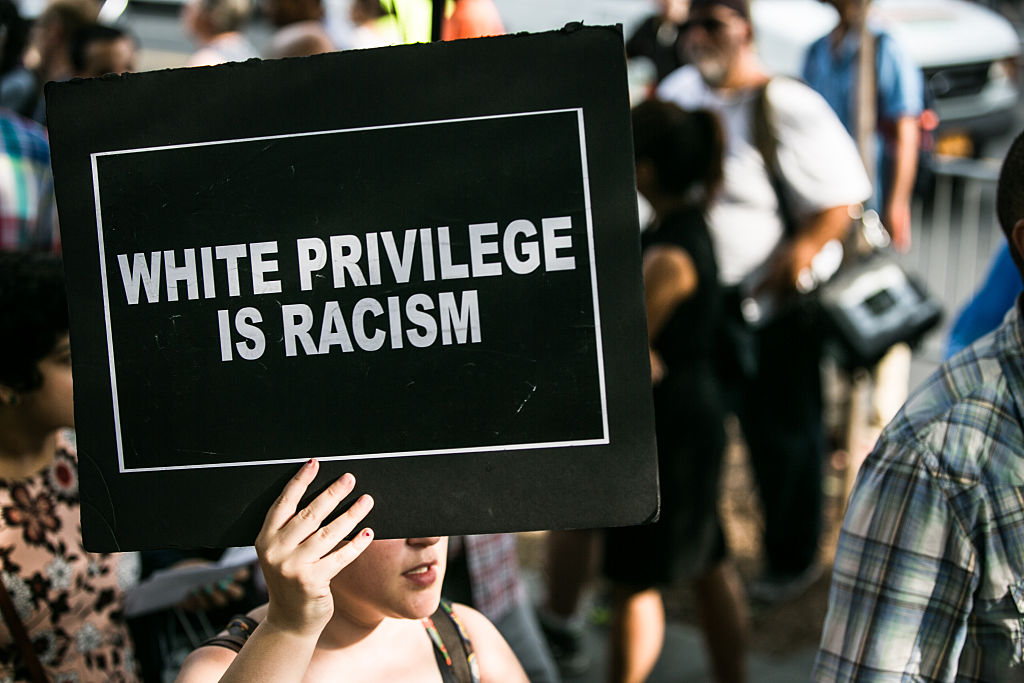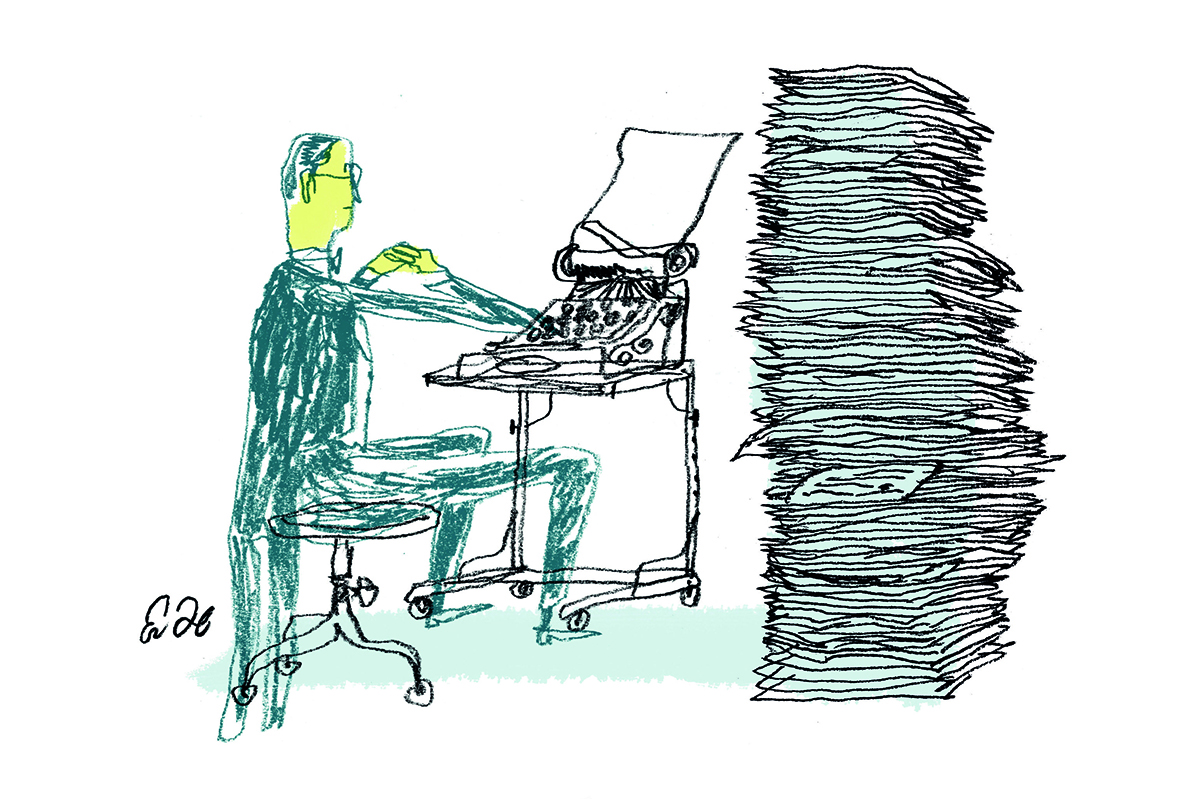You’re familiar, no doubt, with the term ‘red pill’, the Matrix-inspired metaphor that’s become a catch-all for the type of right-wing thinking that thrives in the dark corners of the internet. Now the journalist Katie Herzog, in an admittedly tongue-in-cheek comment, might well have given us a new term: the purple pill.
To take the purple pill, inferring from Herzog’s outlook, is to oppose the dangerous excesses of identity politics, but also the reactionary extremes of the red-pillers. This is, simply, a compromise — or the kind of terminally sensible position that shouldn’t need corny movie metaphors in the first place. But you see her point.
Herzog and Jesse Singal, her co-host on the Blocked and Reported podcast, roused online controversies when both of them, independently and for separate magazines, dared to write about ‘de-transitioners’. These are formerly transgender individuals who decide to abandon the medical transition process and stick with their birth gender after all. Some transgender activists see this as a threat.
Neither Herzog nor Singal considered themselves to be culture warriors. Both are self-identified liberals who sympathize with LGBT rights (Herzog is herself a lesbian) and felt they had approached the topic fairly and compassionately. Yet for their woke critics this was no excuse: Herzog and Singal had committed violence against trans people and must be deprived of any future media platform.
In Blocked and Reported, Herzog and Singal explore how the internet fosters a less tolerant politics. Nothing new there, you might think. But that would overlook two of the podcast’s big selling points. The first is that in a crowded field of commentators Herzog and Singal are awfully good at breaking down exactly why this stuff actually matters. This isn’t so much a podcast about people being awful on the internet — there’s plenty of that already — but how that awfulness is slowly starting to infect the real world too. And that makes a big difference.
Last month the podcast looked at ‘white fragility’, the fashionable theory that white people (yes, all of them) use emotionally manipulative tactics to avoid facing up to their inherent racism. Rather than the preserve of obscure academics, Herzog explained, this hardline thinking had now entered America’s $8 billion diversity-training industry, largely thanks to a maverick white HR practitioner called Robin DiAngelo.
Herzog examined some of DiAngelo’s theories, then spoke to an anonymous employee of an arts organization that had hired DiAngelo to deliver a year-long training program on addressing racism in the workplace. The stories were eye-opening. We were told that DiAngelo had insisted that white workers — women in particular — be banned from crying in the sessions. The use of ‘white tears’, she claimed, was not only a distraction technique, but could also alarm black men by forcing them to think about lynchings. From there, things got even weirder.
This links to the podcast’s other big advantage. Blocked and Reported isn’t aimed at the MAGA-types who mock the idea of diversity training in the first place; rather, it appeals to self-confessed liberals who might otherwise feel unable to air their doubts about these new orthodoxies. Think of it as a safe space for conscientious liberals. And be glad that it exists.
[special_offer]
Exasperated moderates will also enjoy The Political Orphanage, an equally clever podcast from the former DC wonk turned stand-up comic Andrew Heaton. As an ex-think-tanker, Heaton aims to get beyond the sensational coverage of political issues and instead interrogate the policy solutions that might actually solve the problems in the first place.
At the height of the George Floyd protests, Heaton quizzed a policy expert for 45 minutes on what it would actually mean to ‘defund the police’. The phrase, one of the central demands of the protesters, was widely understood as calling for the abolition of law enforcement. It turns out that the slogan, which should more accurately be ‘shrink the police’, owes much of its currency to libertarian circles in DC, where advocates for small government historically feared that the political influence of the police had led to law enforcement swallowing up funds that would be better spent elsewhere.
The conversation turned out to be that rarest of things: a nuanced and genuinely informative discussion about what can actually be done to improve policing in America. We heard about the dangers of over-powerful police unions and collective bargaining, but also the toxic influence of civil asset forfeiture, through which police forces can profit from selling confiscated property. As The Political Orphanage wrapped up, I felt that wonderful relief that comes with knowing you’re that little bit less ignorant about the world. Purple pill or otherwise, how often can you say that about most comedians?

























